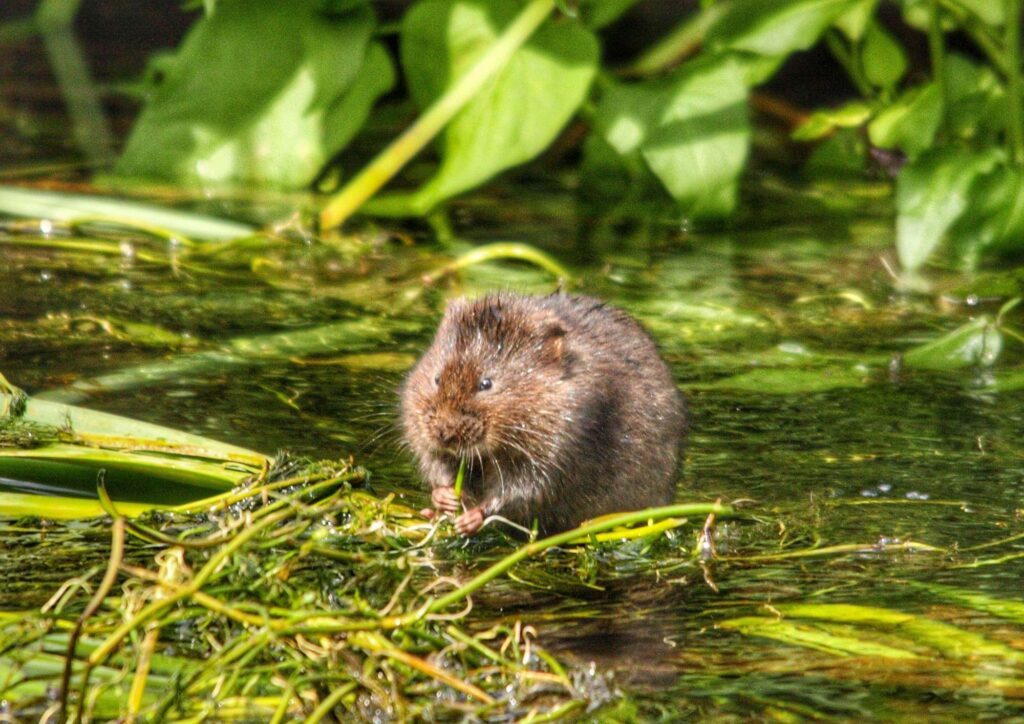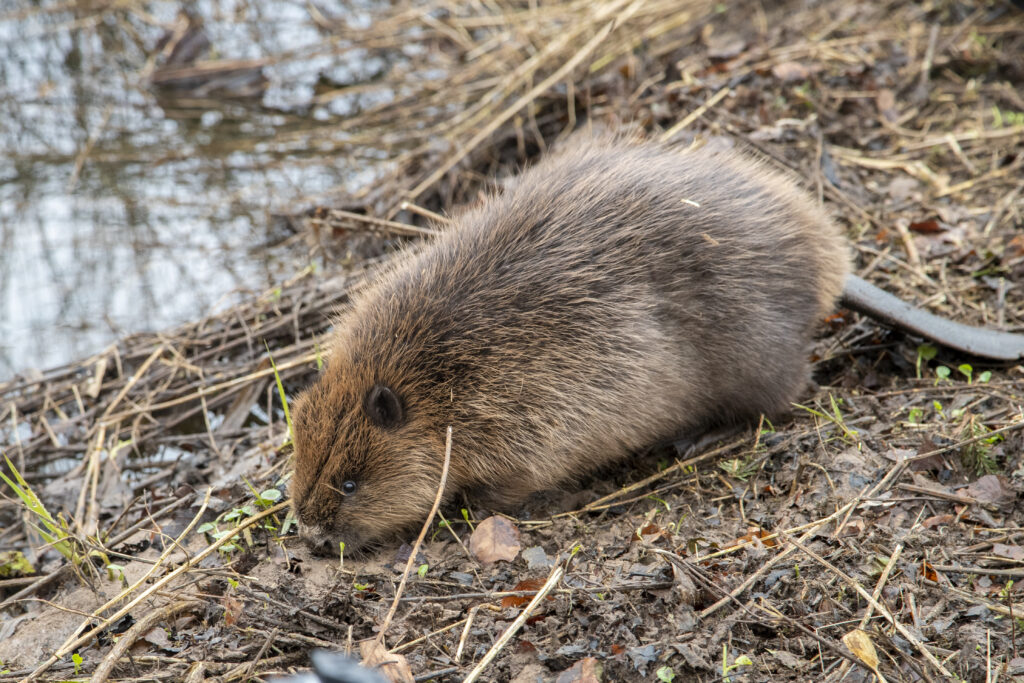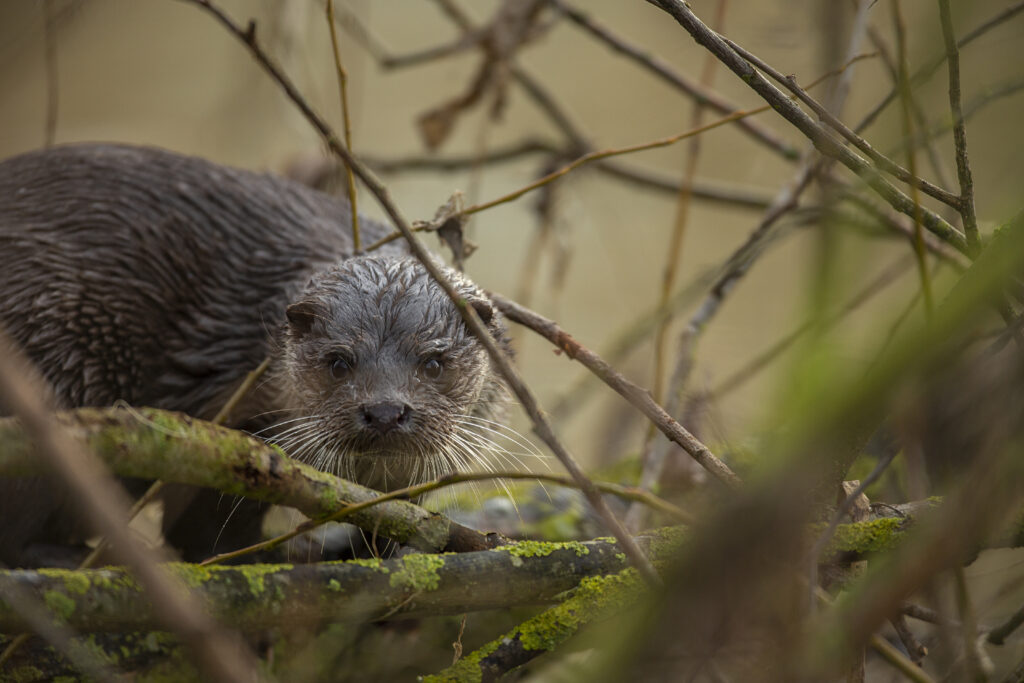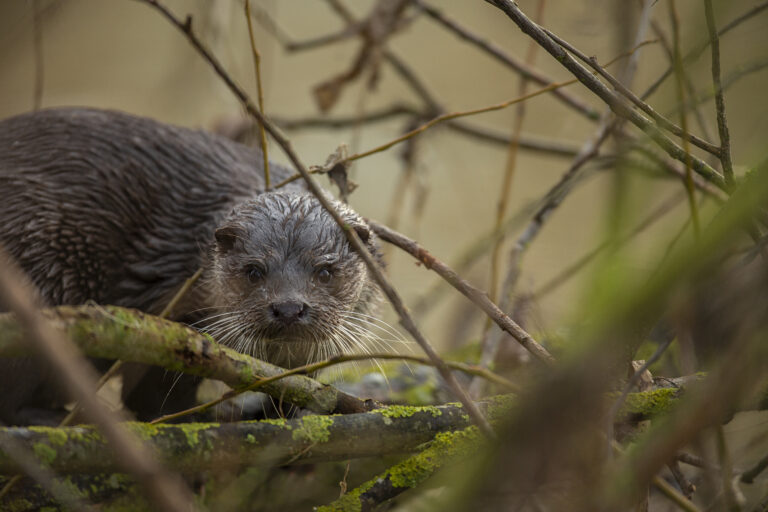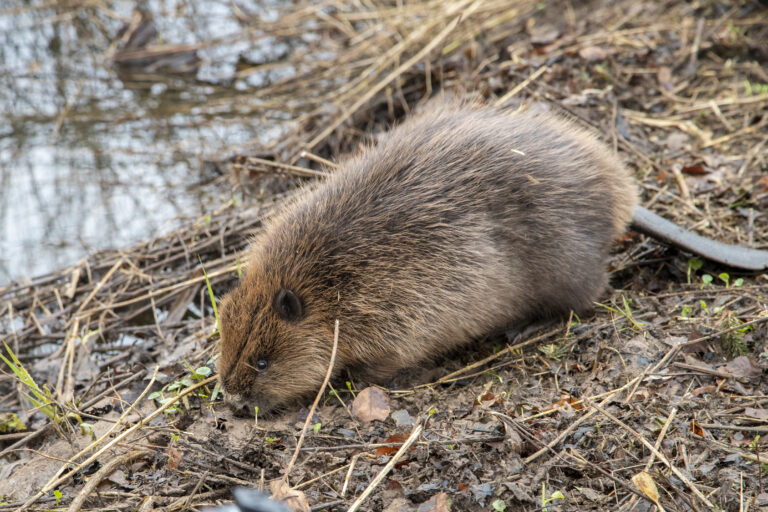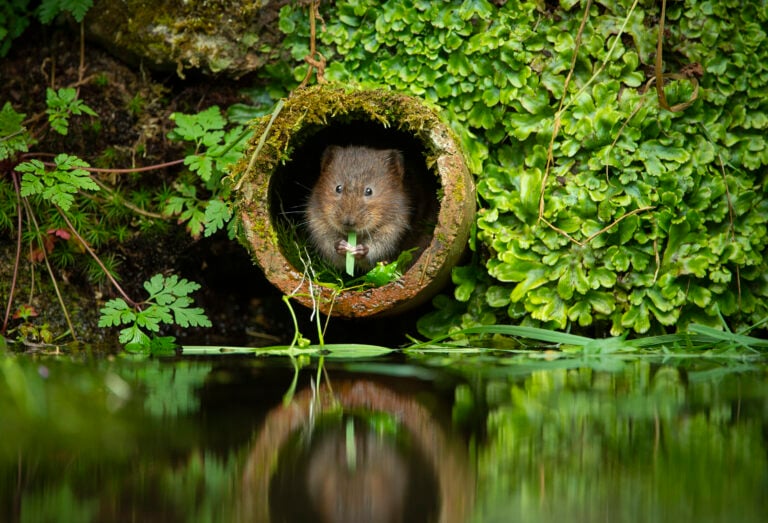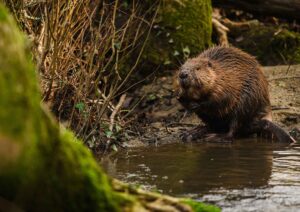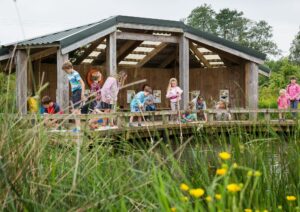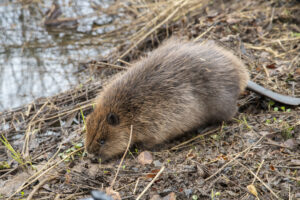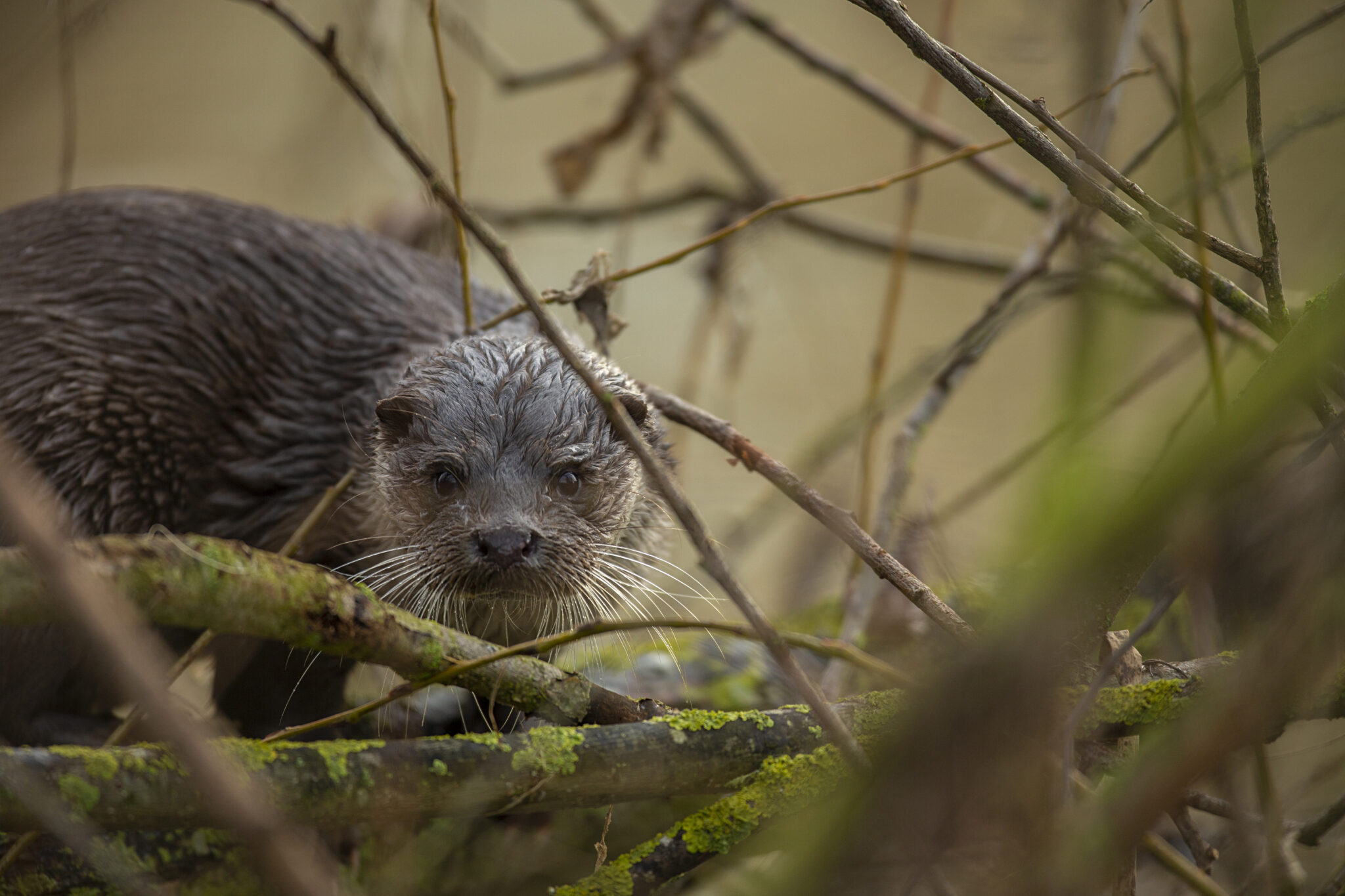Devon has an extensive network of watercourses, which provide important habitats and connectivity for freshwater mammals such as otters, Water Voles, beavers and Water Shrews. These animals need clean, unpolluted watercourses that support healthy invertebrateAn animal that doesn't have a backbone, such as insects, spiders, worms, crabs and slugs. and fish populations and that have riverside vegetation which provides shelter, food and breeding sites.
The south-west of the UK has always been a stronghold for otters, even when the population crashed in the 1950s and they went extinct in many English counties. Today, otters are found on all Devon’s rivers and the population is thought to be healthy.
Water Voles went extinct in Devon in the early 2000s, but have since been reintroduced to several locations. They’re still threatened by loss of habitat and by American Mink, which can wipe out isolated populations.
England’s first wild beaver reintroduction project was carried out on the River Otter, and beavers are also present on the Tamar, Taw, and Exe catchments. Beaver dams create wetlands, which help to reduce flooding and provide habitats for other freshwater species such as Water Voles.
Water Shrews are never very abundant so it’s hard to tell if their populations are under threat. However, they’re known to be numerous in many sites where long-term studies have been conducted.

